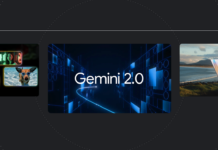Lammy Says Christianity and Class Give Him Common Ground with JD Vance
London, July 18, 2024 – In a recent development that has captured the attention of the global political arena, UK Foreign Secretary David Lammy has expressed that his Christian faith and working-class background create common ground with JD Vance, the running mate to former U.S. President Donald Trump. This statement comes as Lammy seeks to build bridges with high-ranking Republicans amid the evolving geopolitical landscape. The news has been trending heavily on Google searches today.
In an exclusive interview with The Guardian, Lammy shared his thoughts on finding shared values with Vance, despite their differing political affiliations. Lammy, a prominent UK politician from the Labour Party, emphasized the importance of shared human experiences and foundational beliefs in fostering understanding and cooperation across political lines.
Building Bridges Across the Atlantic
Lammy’s overture towards JD Vance, a Republican known for his conservative stance and bestselling memoir "Hillbilly Elegy," marks a significant effort to bridge the ideological divide between the Labour Party and key figures in the Republican Party. Lammy’s remarks highlight his commitment to fostering international cooperation and understanding, irrespective of political leanings.
Speaking on the matter, Lammy said, "In these times of global uncertainty, it is crucial that we find common ground on fundamental values such as faith and class. These shared experiences can serve as a foundation for meaningful dialogue and collaboration."
JD Vance, who rose to prominence with his memoir that depicts the struggles of working-class Americans, shares a narrative that resonates with Lammy’s own background. Lammy grew up in a working-class neighborhood in Tottenham, North London, and has often spoken about how his upbringing has shaped his political views and commitment to social justice.
Faith as a Common Ground
Both politicians have been vocal about their Christian faith, which they consider a guiding force in their lives and political careers. Lammy’s Christian beliefs have often influenced his policy decisions and public statements, advocating for compassion, social equity, and community support.
Similarly, Vance has frequently referenced his faith in public speeches and writings, emphasizing the importance of traditional values and the role of religion in personal and societal well-being.
Lammy noted, "Faith can be a powerful unifier. It provides us with a moral compass and a sense of purpose that transcends political boundaries. By focusing on our shared beliefs, we can work towards common goals that benefit our communities."
Class Struggles and Shared Narratives
The intersection of class in their backgrounds is another point of convergence between Lammy and Vance. Both have experienced the challenges of growing up in economically disadvantaged communities, which has heavily influenced their perspectives on social and economic policies.
Lammy has been a vocal advocate for addressing income inequality, improving access to education, and ensuring social mobility. His policies often reflect his commitment to uplifting marginalized communities and providing opportunities for the underprivileged.
Vance, through his memoir and subsequent political career, has highlighted the struggles of the American working class, particularly in the Rust Belt region. His narrative of overcoming adversity and advocating for policies that support working-class families resonates with Lammy’s own journey and political ethos.
Political Implications and Reactions
Lammy’s outreach to Vance has sparked various reactions within the political sphere. Some view it as a positive step towards bipartisan cooperation and international diplomacy, while others remain skeptical of the potential outcomes.
Political analysts have noted that this move could pave the way for greater collaboration between the UK and the U.S., particularly in addressing global challenges such as economic inequality, healthcare, and social justice. By finding common ground, Lammy and Vance could potentially influence broader policy discussions and foster a more cooperative international environment.
In response to Lammy’s statements, Vance expressed his appreciation for the gesture. In a tweet, he remarked, "Grateful for David Lammy’s words. Our shared experiences and values are a strong foundation for meaningful dialogue. Looking forward to finding ways to work together for the betterment of our communities."
Public and Expert Opinions
The public’s response to this development has been mixed, reflecting the polarized nature of contemporary politics. Supporters of Lammy and Vance have lauded the effort as a necessary step towards bridging divides and fostering unity. Critics, however, question the feasibility and sincerity of such cross-party cooperation.
Experts in political science and international relations have weighed in on the significance of this development. Dr. Eleanor Stevens, a professor at the London School of Economics, commented, "Lammy’s outreach to Vance is a noteworthy attempt at fostering diplomacy and understanding. It demonstrates a recognition that shared human experiences, such as faith and class, can serve as powerful tools in bridging political divides."
Conclusion
David Lammy’s recent remarks about finding common ground with JD Vance underscore the importance of shared values and experiences in fostering international cooperation. By emphasizing their Christian faith and working-class backgrounds, Lammy hopes to build bridges with key Republican figures and promote a more collaborative approach to addressing global challenges.
This trending news highlights the potential for meaningful dialogue and cooperation across political lines, offering a glimmer of hope in an often divided political landscape.
For more information on this news, refer to The Guardian’s article.
This development continues to trend on Google, reflecting widespread public interest and the potential impact on international relations. As the story unfolds, it will be interesting to see how this cross-party dialogue evolves and what implications it may have for future political collaborations.


































